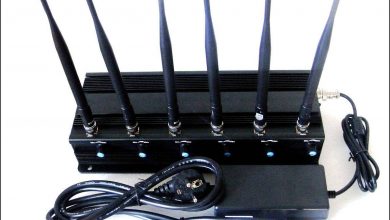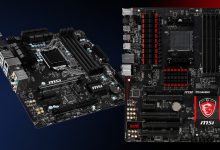What is health information exchange, and why is it important?

Index Of The Blog
If you’ve ever had to fill out a form requesting medical records from your doctor’s office, you’ve experienced health information exchange (HIE). HIE is sending and receiving electronic health information between healthcare providers. The hie software solutions include improved care coordination, better patient outcomes, and reduced costs. This blog post will explore what HIE is and why it’s essential. Stay tuned for future posts that will dive deeper into specific aspects of HIE, such as data sharing standards and governance models.
Health information exchange hie definition is sharing health information electronically between organizations within a region or state.
HIE can improve the quality of patient care by providing authorized clinicians and staff with more complete, up-to-date information about patients, which can help to avoid duplicate tests and procedures, ensure that patients receive coordinated care, and avoid dangerous drug interactions.
In addition, what is hie it can help to reduce costs by eliminating duplicate tests and procedures and improving the efficiency of care delivery.
HIE is essential because it can help improve patient care quality and reduce costs. However, HIE can only be successful if there is a strong commitment from all stakeholders to participate and collaborate.
Data regarding the patient’s exams, mental status, history, etc
Interoperability solution for healthcare refers to a system that allows different healthcare organizations to share patient data. This solution is essential for better patient care and coordination among other providers.
Healthcare interoperability solution usually forms a platform that connects different healthcare organizations. This platform allows for the exchange of patient data between other organizations.
The interoperability solution for healthcare usually includes a standard set of data that can be shared among different organizations. This data standardization helps ensure that the patient’s data is consistent across various providers.
Interoperability solutions for healthcare also typically include features that allow for the secure exchange of patient data. This is important to protect the patient’s privacy and security.
The interoperability solution for healthcare can be a valuable tool for providers and patients. It can help improve care coordination and make it easier for patients to access their medical records.
HIE stands for Health Information Exchange. It is an electronic sharing of health information between healthcare organizations and providers. This data exchange allows for better care coordination, improved patient outcomes, and reduced costs.
Many different types of data can be exchanged through HIE, including:
- Patient medical records
- Exam results
- Mental status
- Medication history
- Allergies
HIE can be used to exchange both structured and unstructured data. Structured data is information that is stored in a predefined format, such as electronic health records (EHRs). Unstructured data is information not stored in a predefined format, such as radiology images.
HIE can be used to exchange data between different types of healthcare organizations, including:
- Hospitals
- Clinics
- Laboratories
- Pharmacies
The problems the patient is facing
The patient is facing problems with hie meaning. The patient does not know how to access the HIE help desk or where to find it. The patient also needs help with creating an account and signing in. The patient does not know how to use the HIE portal or what information is available. Finally, the patient would like help understanding how to use the HIE tools and what information is available.
The patient is facing several problems. First, they have a hie medical abbreviation. This means that they have a high level of medical complexity. This can make it challenging to receive the care they need. Second, they may also have difficulty communicating with their healthcare providers. This can make it hard to get the information they need to make informed decisions about their care. Third, they may also have difficulty accessing care. This can make it hard to get the treatments they need. Finally, they may also have trouble paying for their care. This can make it hard to get the care they need.
A treatment plan based on each problem
Treatment plans for the patient will vary based on the severity of the condition. In general, however, treatment will focus on supporting the baby’s breathing and cardiovascular function and providing nutrition and hydration. Cooling therapy may sometimes be used to help reduce brain injury. Physical, occupational, and speech therapies may also be part of the long-term treatment plan.
As blockchain technology the solution for healthcare interoperability becomes more prevalent, healthcare organizations are beginning to see its potential for solving some of the industry’s most pressing issues today. One of these is interoperability, or the ability for different systems to communicate.
The current state of healthcare interoperability is far from ideal. Different electronic health record (EHR) systems often use different coding standards, which makes it difficult for them to exchange data. This can lead to errors, inefficiencies, and ultimately, less than optimal patient care.
Blockchain technology has the potential to solve this problem by providing a shared, tamper-proof ledger for health data. With blockchain, EHRs could communicate with each other using a common language. This would make it easier for healthcare providers to share data and make better-informed decisions about patient care.
In addition, blockchain-based health data would be more secure, as it would be much harder for hackers to tamper with or steal. This would give patients peace of mind knowing that their health data is safe and secure.
Overall, blockchain technology has the potential to revolutionize healthcare interoperability. Blockchain can help improve patient care and make the healthcare industry more efficient by making it easier for different systems to communicate with each other.
Progress notes according to each problem and the patient’s response to each course of treatment
Health information exchange (HIE) is the electronic movement of health-related data among organizations according to nationally recognized standards.
HIE provides clinicians and patients with timely access to critical patient information, such as medical histories, laboratory results, and medications. This can result in better care coordination, improved patient safety, and lower costs.
HIE can also help improve population health by giving public health officials access to de-identified data sets that can be used for surveillance and research.
While HIE is a relatively new concept, it can potentially transform healthcare delivery in the United States.
The benefits of HIE include:
- Improved patient outcomes
- Reduced costs
- Better coordination of care
- Improved patient safety
- Increased efficiency
- Improved public health surveillance













